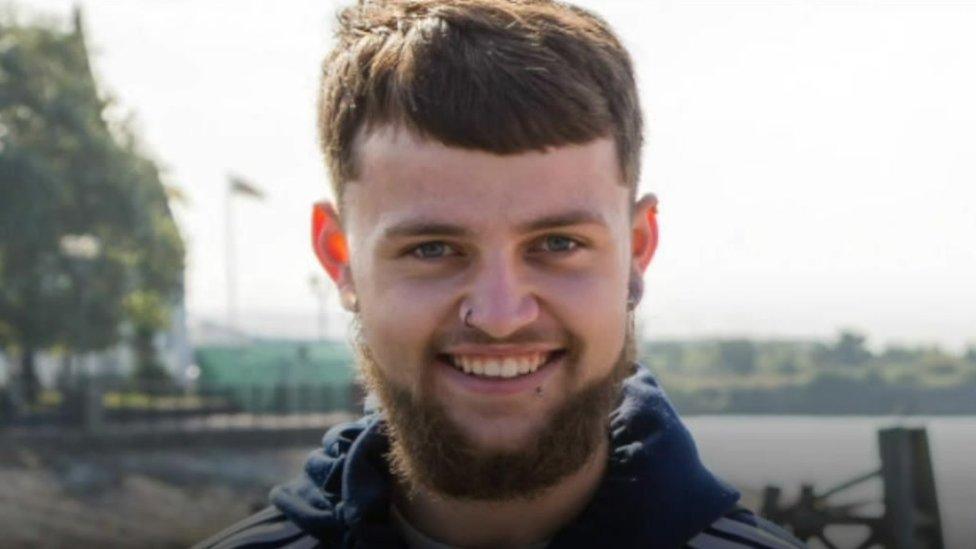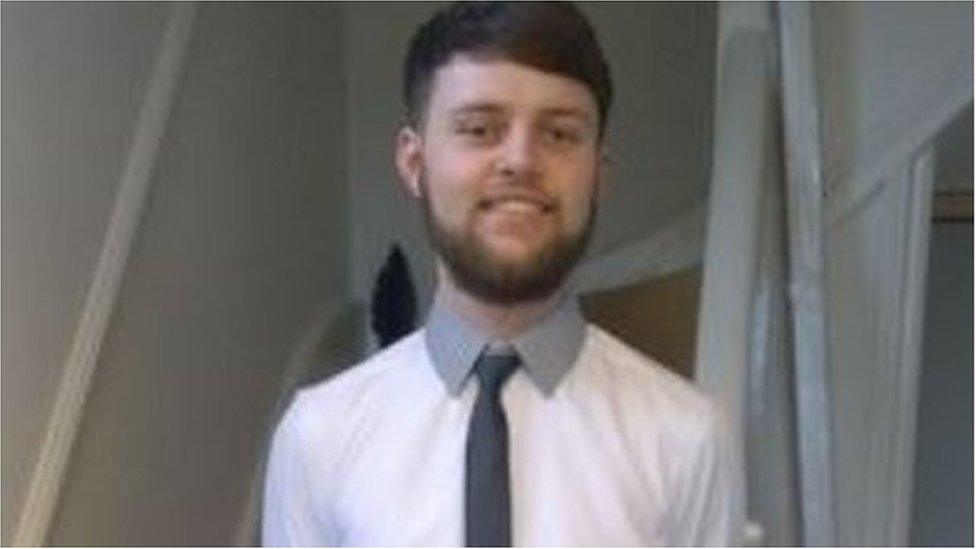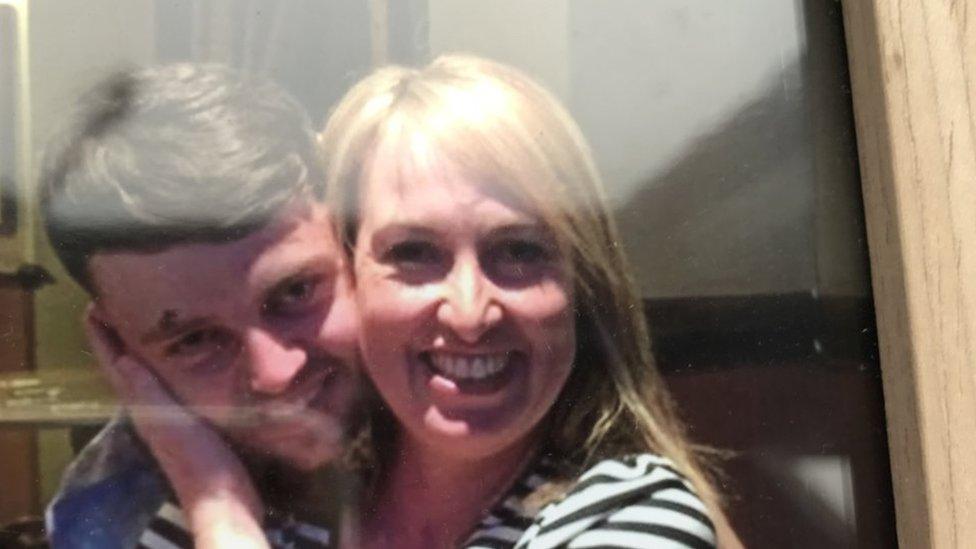Conner Marshall inquest: Killer's probation worker was 'overwhelmed'
- Published
Conner Marshall mother: His face was a mass of bruising
A coroner has criticised the probation service's "woefully inadequate" management of a case worker supervising a man who beat a teenager to death.
David Braddon, 26, mistook Conner Marshall, 18, for his estranged partner's former boyfriend.
Braddon was jailed for life for Mr Marshall's murder in 2015.
In a narrative conclusion at the Pontypridd inquest on Friday, assistant coroner Nadim Bashir said Braddon's case worker was "overwhelmed".
He described how Kathryn Oakley accepted a number of times she could have done more with the supervision of Braddon.
When the attack happened Braddon was under supervision for drug offences and assaulting a police officer.
Probation reforms took place in 2014, with privately-run community rehabilitation companies (CRCs) taking on the work.
Following this, some staff were behind with their work, the inquest in Pontypridd had heard.
Mr Bashir described Braddon's probation officer Ms Oakley as being "brand new to her role" after starting in January 2014.
"She should have been supervised by a team manager once every six to eight weeks," he said.
"She had weak team managers with no team manager oversight of her case work load.
"The management and supervision of her was woefully inadequate."

David Braddon is serving a life sentence for murder
"The failures, however, must have a direct and clear causal connection with Conner Marshall's death and must contribute in a more than minimal way," he added.
"But I am satisfied there was no possible or even probable evidential link that led to Conner Marshall's death.
"Put simply, his death could not have been foreseen or predicted, let alone prevented."

Nadine Marshall spoke at the end of the inquest
Following the inquest, Mr Marshall's mother Nadine said his death had followed the "chaos" after the privatisation of probation services.
"Today is the culmination of almost five years of struggle to obtain truth and justice for Conner and find out why our much loved son was the victim of a callous and unprovoked attack," she said.
She added the supervision of Braddon was "not robust" and the management system in Wales "wholly inadequate".
Mrs Marshall said "we will never know if our son would still be here today" if things had operated differently.
Following the inquest, the trade union for probation and family court staff Napo said it had raised "serious concerns" about the firm responsible for probation services in Wales.
It said staff had complained about excessive workloads, exacerbated by Working Links' decision to make 40% of staff redundant when it took over operations in 2014.
'Scapegoated'
General secretary Ian Lawrence said: "Time and time again we are seeing our members being scapegoated by management across both the public and private arms of probation when a serious further offence occurs.
"This is especially relevant in this tragic case when there is so much empirical evidence to suggest that Working Links were incapable of running a safe and effective operational model."
He said before Working Links went into administration last year, Napo warned ministers that its contract was "failing on every level".
National Probation Service Wales director, Ian Barrow, said: "This was an awful crime and our thoughts remain with Conner Marshall's family and friends.
"While the coroner found Conner's death could not have been avoided, there is no doubt David Braddon's probation supervision was not good enough.
"We have now taken responsibility for managing all offenders on licence in Wales from the Community Rehabilitation Company and 800 more probation officers are in training across England and Wales which will help to improve public protection."

Analysis by BBC Wales home affairs correspondent Jenny Rees
If nothing else, this inquest has highlighted how difficult probation's role is.
On a daily basis, officers juggle supervision of a number of people living chaotic lives.
Processes are put in place to try and manage that, but in this case the needs of a junior probation service officer weren't adequately supported.
Managers were aware she was feeling overwhelmed but an online tool suggested her workload was fine - others were coping, after all.
And so somewhere in the midst of a changing structure, the needs of Kathryn Oakley were overlooked.
It has taken a coroner looking at the inner workings of a service to see this was "woefully inadequate".
It is now down to the Ministry of Justice and National Probation Service to give reassurance that the new way of working is different.
- Published6 January 2020

- Published24 October 2018

- Published25 October 2017

- Published25 October 2017
